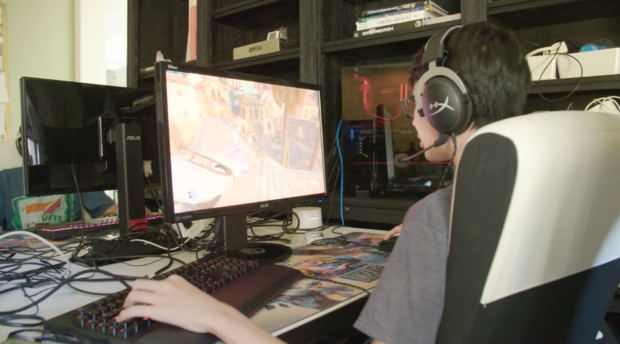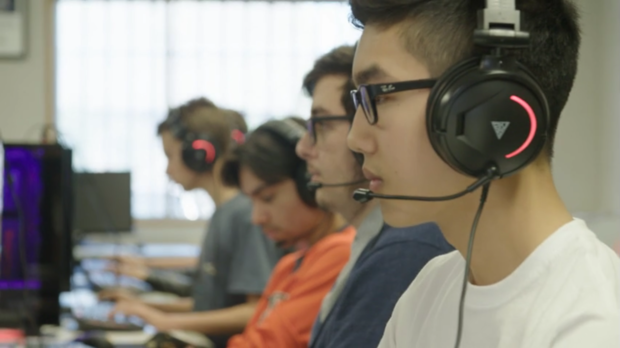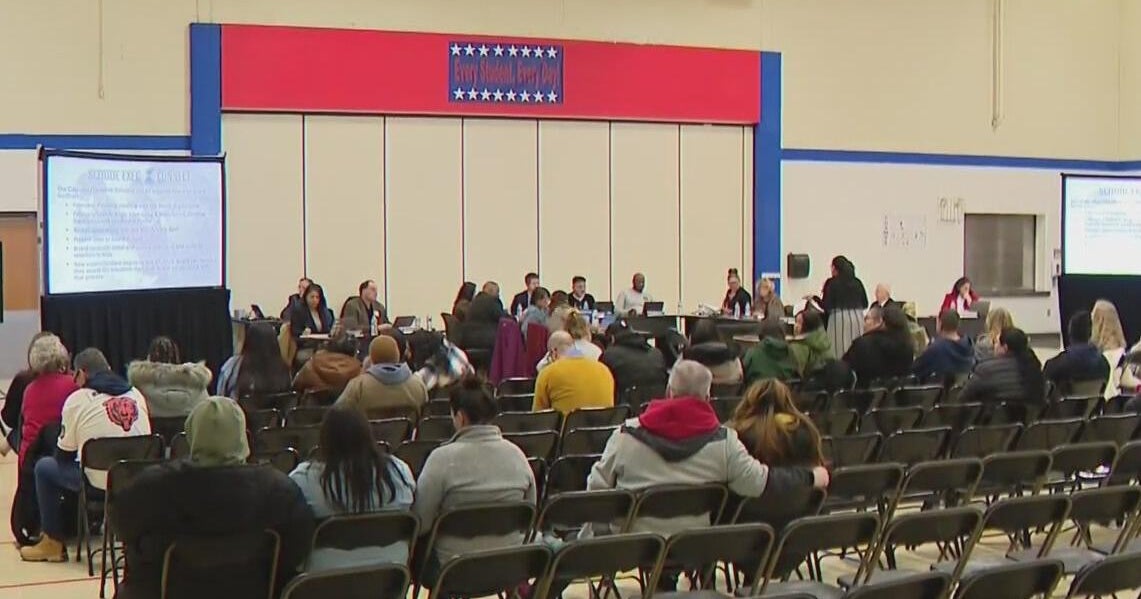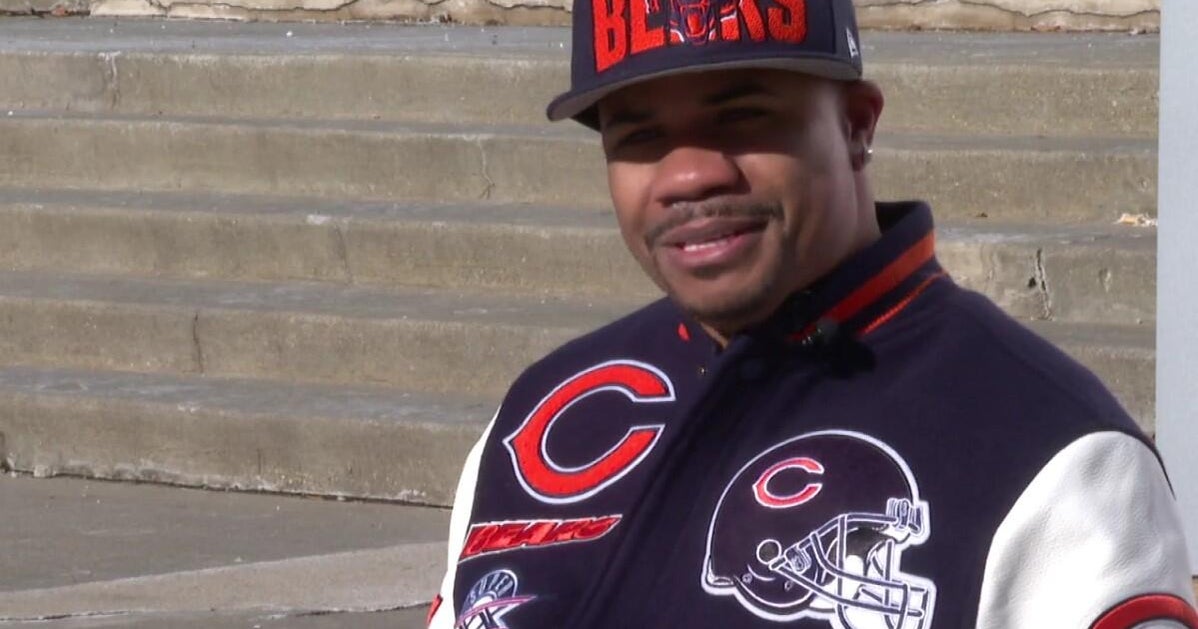In esports, parents and coaches push young players to excel
Watch the new CBSN Originals documentary, "Esports: The Price of the Grind," in the video player above.
On a Thursday night in Santa Ana, California, parents and teachers pack a small arena, phones out and at the ready.
"That's my son up there, Corbin, second seat on the right," said one father, pointing toward the stage, where a dozen high school boys had emerged holding keyboards and headsets.
"It's sudden death — the losers go home," he laughed.
Corbin, up on stage, was preparing for a game of Overwatch. It's one of several highly competitive video games that are played at a professional level — part of the rapidly growing world of esports.
At any other time in the more than 40-year history of video games, this scene would have been unthinkable — parents cheering on their kids in a video game competition with as much enthusiasm as they would a soccer game or school play.
But as the world of esports gains more mainstream acceptance — and generates jobs ranging from top-paid pro gamers to video game designers — some parents are coming around to seeing video games as a positive activity.
"Maybe it's time for us, as a different generation, to look at things through their eyes and see what it is that they're going to be interested in learning," said Kara Dang Vu. "Maybe, stop forcing the piano lessons on them, or the ballet lessons, or all the traditional things that these kids are so crammed with all the time, and instead just, like, 'What are you interested in?' And try to get behind it to see if it makes a difference."
Kara had arrived at the arena with her two teenage sons, both active gamers, and her husband Huy. Huy Dang Vu, CFO of a private equity firm, also plays video games in his free time, and weekends at the Dang Vu home often include a long round of family gaming, the three gathered around a table, each battling through their respective games.
"First of all, I do this for entertainment," Huy said. "But it's much more than that. It's learning social skills, it's learning leadership skills. It's being able to convince, or motivate, people who don't know you."
Huy says his son Conner isn't a naturally outgoing person. But in his game, Overwatch, Conner's teammates recently elected him to be team leader, and from the challenges of that role his confidence has risen considerably. "I feel like the skills that he's learning will go even beyond the gaming world," the proud dad said.
For other parents who need more convincing, teenage gamers are now able to point to gaming clubs and programs in high schools and colleges. More than 100 high schools in the U.S. have launched dedicated esports programs alongside their traditional soccer and football teams.
And at colleges like the University of California, Irvine, top players are even given scholarships to entice them to enroll, a privilege long reserved for premier athletes.
"I talk to parents all the time and overwhelming they are relieved that this is an opportunity for their student," said Mark Deppe, director of esports at UC Irvine.
"They know that their child is really engaged in games, and they are devastatingly concerned that it may not lead to something productive. When they see hundreds of scholarships or schools offering scholarships, when they see a massive industry growing and they understand the careers that will be available by the time their students are ready to enter the workforce, parents are excited, relieved, and it changes their perspective on video games."
He's seen attitudes shift, as parents increasingly view gaming not as an adolescent time-waster but as a way for kids to develop valuable skills.
"You're starting to see [parents] send their children to summer camps, you're starting to see students sign up for online coaching. So parents are starting to get more engaged and involved," Deppe said.
One game in particular, Fortnite, has recently become immensely popular, particularly for school-age children, and being good at the game meant status at school. Some parents began hiring private coaches to help their kids improve at the game — not necessarily to give them a shot at a career in gaming, but to help them in their social life.
"You hear stories of parents hiring their students Fortnite coaches, because they want to be good at Fortnite and their social status comes with being good at video games on campuses," Deppe said.
Just as in any top athletic sport, however, making it to the paid, professional level of esports is a long shot. With hundreds of millions of video game players throughout the world, rivaling global games like soccer, those who make it pro represent a tiny minority. Unlike in most athletic sports, video game players are ranked based on their performance, so they have a pretty good understanding of where they stand.
For Conner Dang Vu, who is a highly ranked player in Overwatch, the life of a pro player would be a dream come true, but he's still not sure he's ready to take on the best of best. Instead, he's looking into more pragmatic goals.
"Playing games has really helped me on the creative side of thinking, because I want to be a game developer or programmer," he said.
Until then, though, he's just happy to be playing, with mom and dad cheering him on.








